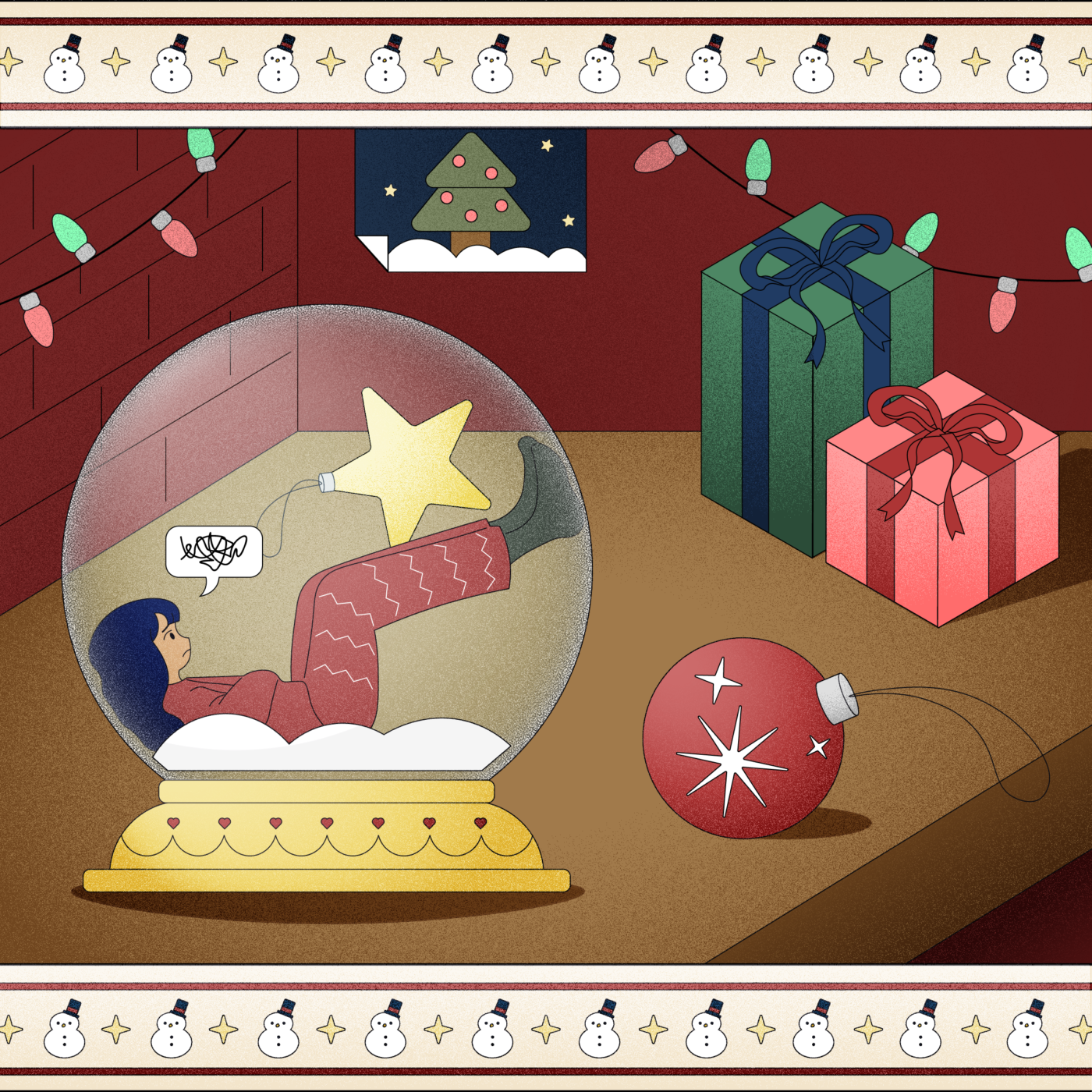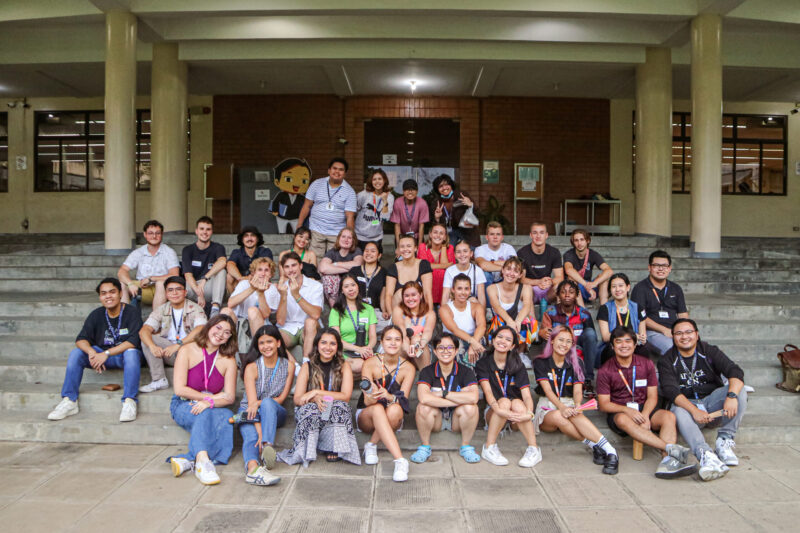EAGERLY AWAITED by many, the Christmas season is a time when the air is filled with the hustle and bustle of the holidays, as people prepare for their Christmas parties and traditions. The atmosphere brims with a sense of merriment and celebration—which is not the case for everyone, especially those whose holidays are not seasoned with carols and joy.
Once the “-ber” months hit, the Yuletide bliss begins. However, amid the prevalent celebration, many individuals experience an overwhelming set of emotions ranging from mild melancholy to profound sadness. These feelings are often associated with the “holiday blues.” The symptoms may include fatigue, loss of interest in activities, emotional dysregulation, disappointment, loneliness, sluggishness, mental distress, frustration, tiredness, or even dread.
These blues lead a portion of the population to display symptoms that are similar to depression during the holidays, regardless of the season. The glitter and glamor may not be enough to keep the season merry.
Holiday haze
Holiday blues are more common than perceived, especially among young adults. Unbeknownst to many, some feign laughter and glee to hide the seemingly overwhelming emotions they feel inside.
Nathaniel Bermoy (AB EU ‘25) shared that there are instances when he feels more anxious than excited during the holidays. He observed that the “Christmas magic,” which is often a source of wonder for children, seemed less evident now compared to his younger years.
“I feel like it’s because I grew up. I know it sounds silly, but I feel like when you grow up, you start to realize all of the things you didn’t realize as a kid,” Bermoy pointed out.
As an adult, he has taken more responsibilities to help his family prepare for their upcoming celebrations. Christmas shopping is especially stressful for him as he has to account for everyone’s gifts in the middle of the holiday rush. He has to set aside enough budget to ensure no one is left out.
Aside from Nathaniel’s experiences, people find themselves in situations during the holiday season that can trigger these blues, such as losing or being away from loved ones, and having financial constraints. When placed in these unfortunate circumstances, it is particularly harder to be merry and bright.
Through the tinsel
When asked about the root cause of these blues, both Loyola Schools Office of Guidance and Counseling Guidance Counselor Marvin Cruz and Fernandez identified several contributing factors.
Cruz delved into the role of commercialization in shaping an idealized version of the season. He pointed out that Filipinos have the longest Christmas celebration—extending the period for over four months—and are devoted to attending several parties, hosting get-togethers, and exchanging elaborate gifts.
“There is a schema created about the holidays that people are expected to follow. When one sees the materialism of Christmas, they begin to question, ‘Why don’t I have many parties? Why aren’t my outfits grandiose? Why isn’t my family traveling around?’ And if one can’t live up to the ideal, it creates a discrepancy and is a reason for these blues,” Fernandez said.
Talking about the impact of personal relationships on holiday experiences, Fernandez highlighted that Filipino Christmas is deeply rooted in gatherings with family, friends, and loved ones. However, she pointed out that the loss of someone special—whether through death or geographical separation—can cast a shadow over these festivities, turning joy into sorrow.
Likewise, the holidays are harder for those who are not as sociable or have difficulty connecting with others. At this time, when people go out and meet their friends, they may feel even lonelier compared to any other time of year.
Furthermore, the holiday season introduces an additional layer of complexity by disrupting an individual’s daily routines when schools start their holiday breaks and offices temporarily close. This significant alteration in everyday schedules may lead to increased stress and disorientation for people who value regularity and predictability. Meanwhile, this disruption may be less challenging for those who are more spontaneous and adaptable to change.
“Because of individual differences, those who value structure may have a higher tendency to be able to move past these blues when everyone gets back to the regular schedule of programming, or the groove of normal life. Although for others, it may be harder to bounce back and manage themselves,” she added.
Nevertheless, such blues differ on a case-to-case basis, in which the reasons for these bubbling sentiments may vary depending on the person’s contexts.
Giving season
During this conventionally merry season, Cruz mentions that people rarely pay attention to the blues. The pressure to maintain the holiday cheer within families and communities discourages people from acknowledging their emotional struggles.
However, embracing a more nuanced understanding of these emotions is imperative to foster a collective climate of empathy and support. Recognizing and accepting the diverse wide-ranging emotional experiences during this period can lead to a more compassionate and authentic celebration of the holidays—emphasizing inclusivity and validation of various sentiments.
If a friend is experiencing holiday blues, it is essential to be sensitive to their feelings by listening with empathy and validating what they are going through. There may be a desire to save them from themselves and resolve their issues on different terms, but such practices should not be so. Mindfulness is paramount when lending advice so as to not downplay their emotions or make them think as if these feelings are abnormal.
Fernandez emphasized the importance of communication in this season. By posing questions such as “How do you want me to be with you?” and “What kind of love and companionship do you need from me right now?”, it acknowledges that people need different kinds of support, whether practical, physical, or emotional.
Cruz also points out that Ateneo students experiencing emotional challenges during the holidays should not hesitate to seek help. They can contact these offices during emergencies or whenever in need of someone to talk to.
- Ugnayan at Tulong para sa Maralitang Pamilya Foundation, Inc. (UGAT)
- 2/F ISO Annex Building, Social Development Complex, Ateneo de Manila University, Katipunan Ave., Loyola Heights, Quezon City
- (632) 8 281 8844
- ugatfoundationinc@gmail.com
- ugatfdtn@gmail.com
- Ruben M. Tanseco, S.J. Center for Family Ministries (RMT-CEFAM)
- Ateneo de Manila University Campus, Seminary Road, Loyola Heights, Quezon City
- Satellite Pastoral Counseling Site (in cooperation with Don Bosco Parish) Don Bosco Parish Arnaiz Ave. cor. Amorsolo Street, Makati City
- Telephone numbers: (632) 8426-4289 to 92 & (632) 8426-4285
- Number (Admin/CANA): +63 915 419 1636
- Number (Pastoral Counseling): +63 927 863 9346
- The Medical City Center for Behavioral Health
- Department of Psychiatry Institute of Neurological Sciences, Ortigas Ave., Pasig City, Ground Floor, Podium Building
- 8988-1000 Loc. 6135
- 0917 635 0197
- cbh@themedicalcity.com
- Philippine Mental Health Association, Inc. (PMHA)
- 18 East Ave., Diliman, Quezon City, 1100 Metro Manila
- cisd@pmha.org.ph
- 0917 565 2036 or 02 8921 4958
- They offer counseling sessions on a socialized scale; their fee will depend on the assessment of the case management officer, who will conduct the initial interview before decking them for their schedule.
- Philippine General Hospital
- Department of Psychiatry and Behavioral Medicine (Pro-bono counseling), Taft Ave., Manila, Philippines
- pghpsychiatry@gmail.com
- In Touch Community Services, Inc.
- 48 McKinley Rd., Forbes Park, Makati City, 1219
- +63 2 8893 1893
- intouch@in-touch.org
- National Center for Mental Health (NCMH)
- Nueve de Pebrero St., Brgy. Mauway, Mandaluyong City
Outpatient (Adult) Services
- 0999 396 3418
- 8-531-9001 Loc 1200
- ncmheconsultation@gmail.com
- bit.ly/ncmhkonsulta
Outpatient (Child and Adolescent) Services
- 8-531-9001 Loc 383
- ncmhchildops@gmail.com







